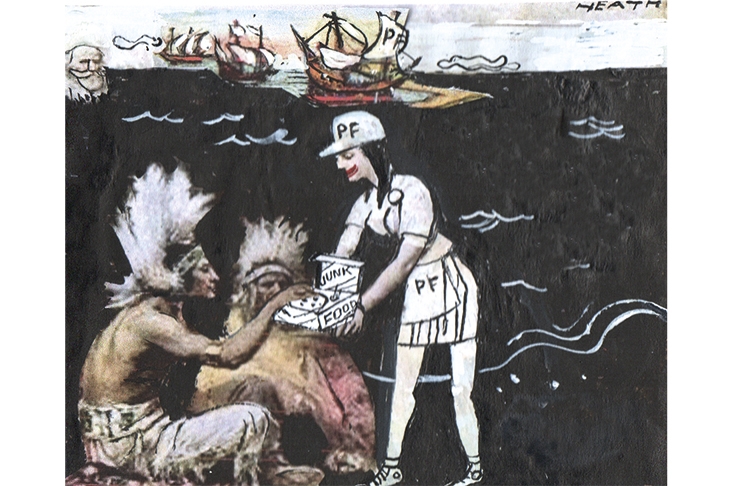‘Now, splendidly, everything had become clear. The enemy at last was plain in view, huge and hateful, all disguise cast off. It was the Modern Age in arms.’ After last week, I feel like Evelyn Waugh at the time of the Nazi-Soviet Pact in 1939. The politics of ‘progress’ has found its fulfilment in the union of two total malignancies: the campaigns to abort babies at full term and to kill old people before their time. Here is our enemy, all disguise cast off.
It’s the revenge of the middle-aged against their dependents
I’ve been accused of disguising something myself: my Christian faith. And it’s true that while I’ve never hidden it (see my maiden speech) I didn’t parade my faith as the basis of my objection to assisted suicide. You don’t need religious arguments to show this Bill is bad, and many atheists have been brilliant in the battle against it. You just need to actually read the Bill, and the statements of all the professional bodies who work with the elderly and dying. I’m appalled that so many MPs – judging by their asinine speeches – have plainly not done this.
But now that the Bill has passed the Commons I guess I can come out of the closet and say to the militant anti-Christians who were pushing it: you’re not wrong. I do also object to euthanasia on religious grounds – because the case for euthanasia is itself a religious one. Nothing else explains the failure of its supporters to engage with the detail of the Bill, or the practicalities of implementing it. Support for assisted suicide is an article of faith – faith in the capacity of individual human beings to play the role of God, towards themselves and others.
Christians by contrast think human beings are fallen – weak, selfish, dangerous – so we don’t trust them with absolute power. That’s why over the centuries, especially in England, the idea developed that the law should protect us from each other, and even from ourselves, and certainly from the state.
In objecting to assisted suicide, I was trying to defend this old fashioned idea that the law should protect the vulnerable. And in abandoning this idea we are opening the door to a terrible dystopia.
Not just in the moral sphere. The things our country needs more than anything are more children, and more care for our aging population. The Commons voted this week for the opposite: death to both groups. It’s the revenge of the middle-aged against their dependents. We are ushering in a dangerous new politics, a sort of hedonic utilitarianism in which the convenience of adults is paramount even over the lives of the young and old. This is the pagan philosophy, with its cult of strength, which Christianity banished but is now returning.
Maybe I’m exaggerating, but these are apocalyptic times. As the world beyond Britain blows up, as technology rewrites everything, and as our own security, economy and society are increasingly, desperately, precarious, how do we feel about junking the ideas that created and sustained the peace and prosperity of these islands for 1500 years? What’s the alternative story we’re going to tell ourselves, in place of the one about us being individually, uniquely valuable but also chronically prone to wrongdoing?
The opposite story – that we’re perfect moral beings but that if we’re weak or unwanted we will be killed – feels less appealing to me, and certainly less useful to the challenges of the times.
If we are to withstand our enemies, bring our society together, and tame the technium (somehow ensure that human values govern the new age of machines), we are going to need values that are up to the job. I don’t think humanist atheism or progressive liberalism or whatever the new religion should be called, is up to it. Christianity is. Only Christianity is.







Comments